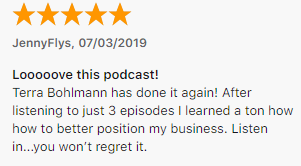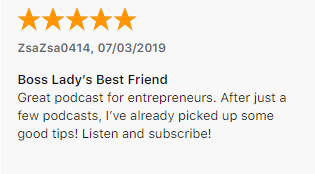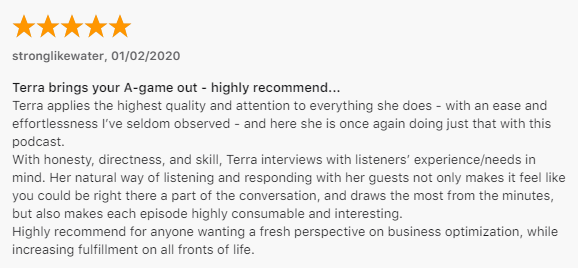The Fast-Track Woman Podcast: Episode #12
Build Your Business Brand's Core Story Collection
with Jilliane Yawney
Click the Play Button + Listen Below.
Meet Podcast Guest, Jilliane Yawney.
Jilliane has coached and provided a platform for thousands of people to share their story. She is the founder of A Narrative Approach, where she empowers entrepreneurs and business people to communicate with impact using story.
Jilliane founded the Calgary Story Slam in 2012, a community-based storytelling platform. Through the Calgary Story Slam she builds performers and storytelling community by providing a space for people to find their voice and share their story. She is a faculty member at Mount Royal Conservatory in the department of Speech & Dramatic Arts where she instructs on the power of storytelling and voice in communication.
Jilliane spent 13 years in non-profit and management where she coached teams to use storytelling as part of their communication strategy. In her Master’s Degree, she wrote a thesis on the role of storytelling in education. She is currently a speaker coach with TEDxYYC.

About this Podcast Episode.

In this episode, Terra Bohlmann interviews Jilliane Yawney of A Narrative Approach where she empowers entrepreneurs to communicate with impact using story. She teaches her strategy to have a Core Story Collection that empowers you to connect with your audience - whether it’s on a stage or in a simple email.
You’ll also learn how to use your Core Story Collection to build your business in a way that’s authentic so people know what you truly care about. You’ll find out the internal struggles Terra has when she has to speak at an event and share personal stories herself as well as Jilliane’s expertise on how to overcome stage fright and nervousness to share your stories with your audience.
There’s no doubt that sharing relevant stories help you make a connection with others you are meant to impact...so tune in for this episode that will change the way you connect with others in the future.
Resources, Tools, and Links Mentioned in this Episode.
- To learn more about Jilliane, visit www.aNarrativeApproach.com.
- Apply for your complimentary Fast-Track Session with Terra HERE.
Read and Download the Transcript for this Episode.
Interact More with the Podcast.
Great Reviews Make My Heart Sing.



Much appreciation from one happy Podcast Host!
Are you subscribed to my podcast?
If you’re not, you should subscribe so you never miss an episode.
And...I invite you to take it a step further + leave a 5-Star review.
To give a review, click the image and select “Ratings and Reviews” and “Write a Review” on iTunes.
Share a takeaway what you learned and let other women entrepreneurs know why they should listen to the podcast.
Reviews help other women entrepreneurs find my podcast and I truly enjoy reading them.
It takes a community of like-minded women to help other like-minded women succeed.
(Oh, by the way, I love to do shout-outs on future episodes and you just may hear your name!)



